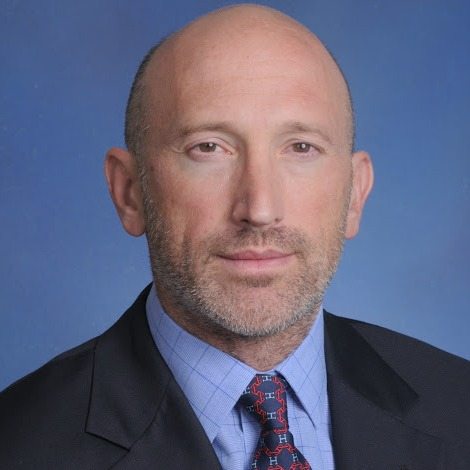Juan Pablo Cappello met well-known Argentine entrepreneur Wenceslao Casares when he was “living out of a backpack in New York.” After a brief career in traditional law, Juan Pablo’s career took off when he was on the founding team of Patagon, Latin America’s first online bank, with Casares and two other entrepreneurs. A few years later, in 1999, Patagon was acquired for $750M, becoming one of Latin America’s first large exits. Despite the company’s massive success, he admits to making every mistake in the book along the way. Few other lawyers, especially in Latin American venture law, have such direct experience in founding, growing, and selling businesses.
In this episode of Crossing Borders, I sat down with Juan Pablo Cappello to talk about the Latin American tech ecosystem in the late-1990s, what it was like to be part of a skyrocketing startup, and the lessons he learned while founding a startup. We also discuss his decision to found PAG.law in Miami, common mistakes made by Latin American founders, and his current view on opportunities in the Latin American ecosystem. Juan Pablo has been active in the Latin American tech ecosystem for over 20 years; check out this episode to hear a veteran’s perspective on recent changes in Latin American tech and venture capital, especially given Softbank’s recent investment announcement.
Why Latin America needed a purpose-driven law firm
Juan Pablo’s current venture is Miami-based firm, Private Advising Group, otherwise known as PAG.law, a boutique law firm that helps Latin American founders and companies handle legal challenges in the US and Latin America. Growing up in Chile with a mother from the US, Juan Pablo is used to having a foot in each region and knows what it takes for LatAm founders to manage their businesses across borders. He admits that at least 50% of his referrals come from funds who want to invest in companies whose deal structures were messed up by local lawyers.
Juan Pablo’s tongue in cheek advice? Trust no one. In the past few years, venture law best practices have become relatively easy to find and understand. Listen to the rest of this episode to hear Juan Pablo’s advice on how founders can educate themselves to align incentives with their lawyers for better outcomes.
Latin American founders should go to Miami, not Silicon Valley.
Of 2.8 million people living in Miami today, 2.2 million are of Hispanic origin. If you fly straight to Silicon Valley, he warns, it will be extremely hard to get noticed. The US startup ecosystem is now more diverse and founders should choose their soft landing or regional office based on industry or ease of entry. For a Latin American company used to serving Hispanic and Spanish-speaking customers, Miami is an ideal location – and much less costly than Silicon Valley. Softbank’s new $5B Innovation Fund is based in Miami.
Juan Pablo has advised over 400 startups who do business between Latin America and the US. Check out the rest of this episode to hear why he thinks startups that go to Silicon Valley right away are often mistaken, and why Miami, Boulder, Austin, and New York might be better options.
If you want to raise money, be ready to understand the venture math.
When Juan Pablo was on the early Patagon team with Wences Casares in the late-1990s, the current venture capital best practices did not exist. Founders currently have access to much more information about investment instruments, venture capital models, and valuations than they did 20 years ago. However, Juan Pablo notes that most startups approach fundraising without considering the returns VCs need to present their investors be sustainable. Having a great idea is not enough, whether you are in the US or in Latin America.
In this episode, he provides rough calculations of what Latin American entrepreneurs are expected to receive in an exit to be considered a positive investment. Listen to Juan Pablo’s “venture math” and how entrepreneurs can adjust their valuation expectations accordingly in this episode.
Juan Pablo was one of the earliest actors in the Latin American tech ecosystem and provides a unique long-term perspective on the recent uptick of tech investment and innovation in the region. Check out this episode to hear how he has created a law firm that understands business in Latin America and the US and what he has learned from watching hundreds of founders try to make it in the US market.
Show Notes:
- [1:33] – Nathan introduces Juan Pablo
- [2:25] – What is PAG.law?
- [4:13] – JP’s childhood in Santiago, Chile
- [5:43] – The early days of Patagon
- [7:40] – What was the growth pattern at Patagon?
- [9:26] – Biggest lessons learned in Patagon
- [11:00] – How Latin American founders can choose a good lawyer
- [14:13] – Biggest errores LatAm founders make in legal decisions
- [19:14] – Why JP likes the Cayman Islands
- [20:36] – Cayman or Delaware LLC?
- [23:36] – Where can LatAm founders enter the US market?
- [27:47] – Miami as a gateway for the US
- [33:06] – JP’s advice to his younger self
- [39:50] – Why LatAm founders need to understand venture math
- [42:42] – The real value of advisors for startups
Resources Mentioned:
